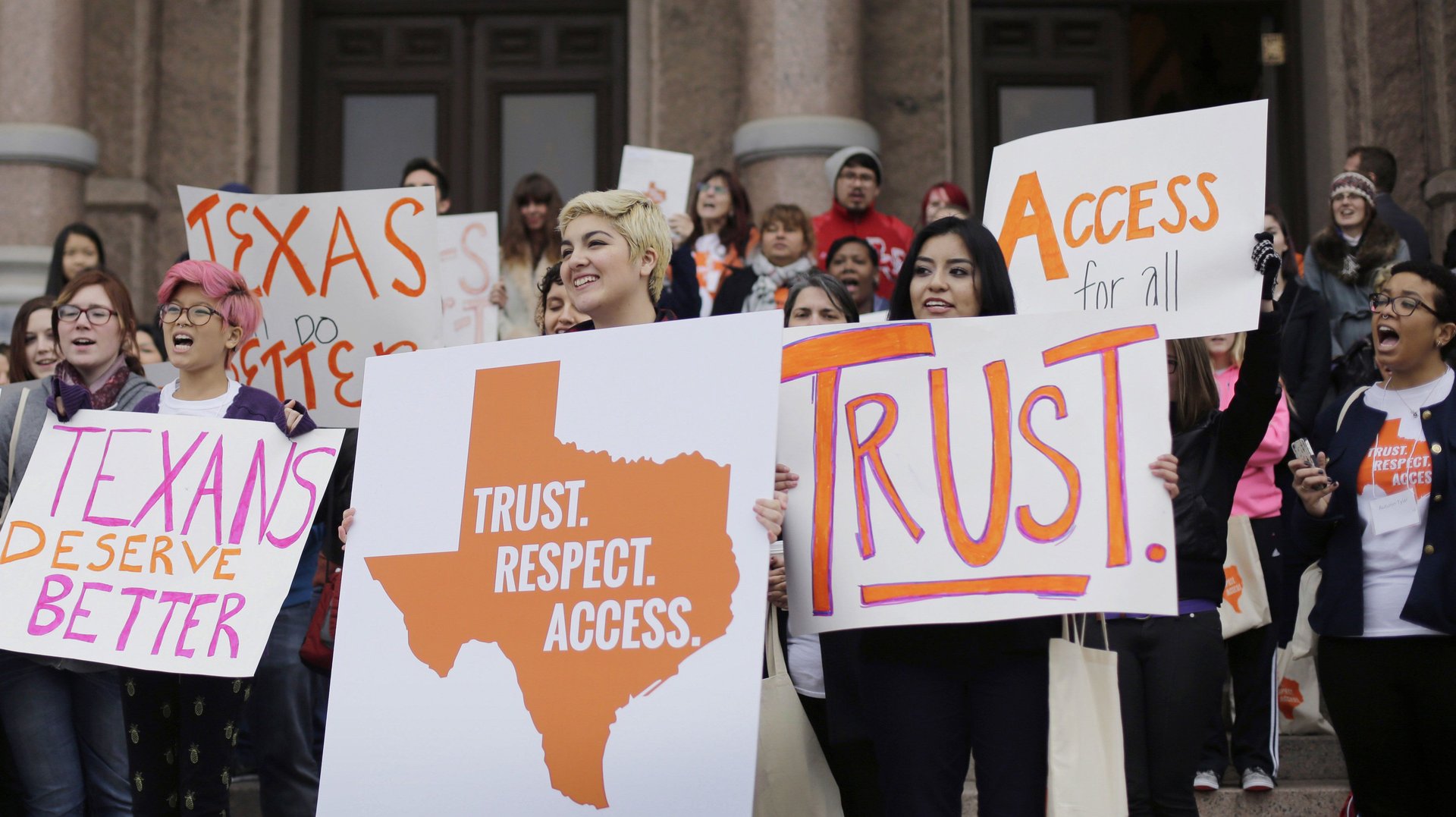The US Supreme Court has agreed to take up the biggest abortion case in more than 20 years
The US Supreme Court will review a controversial Texas law that would reduce the number of abortion clinics in the country’s second most populous state from 19 to 10 if it were fully implemented, it said on Nov. 13 (pdf).


The US Supreme Court will review a controversial Texas law that would reduce the number of abortion clinics in the country’s second most populous state from 19 to 10 if it were fully implemented, it said on Nov. 13 (pdf).
It’s ruling on the case, which was filed by activists seeking to overturn a law that increases requirements for abortion clinics, could be its most important one since 1992. Back then, the justices determined that states can’t impose an “undue burden” on women wanting to end a pregnancy, but they failed to clearly define what that was.
The Texas case could shed light on that.
The measure, which was passed by the state’s Republican-dominated legislature in 2013, mandates that abortion doctors get admitting privileges at a nearby hospital. That change resulted in half of Texas’s clinics shuttering their doors, according to the Center for Reproductive Rights, which took the case to the Supreme Court. The law also requires that facilities where abortions are performed meet the standards of ambulatory surgical centers—improvements worth millions of dollars, the group says.
Proponents of such laws say their goal is to ensure women’s safety. But defenders of the right to abortion say that clinics are already safe and the extra requirements are a tactic to restrict them from offering the service.
Abortion clinics in Texas have been challenging the state’s law in court since 2014. The last to weigh in was the Supreme Court itself in June, when it excused the clinics from complying with parts of the law while their lawyers asked the court to review the case.
Whatever the court decides, its impact will be widespread. In past years, more than 20 states have created stricter standards for abortion clinics and doctors similar to the ones mandated by the Texas measure, according to the Guttmacher Institute.
Last month, Ken Paxton, Texas’s attorney general, urged the Supreme Court not to take the case, arguing it’s not the court’s role to “serve as ‘the country’s ex officio medical board with powers to approve or disapprove medical and operative practices and standards throughout the United States.’”
The court, whose last decision on abortion was in 2007, is expected to rule on the case in the Texas case next summer, just ahead of the presidential elections.